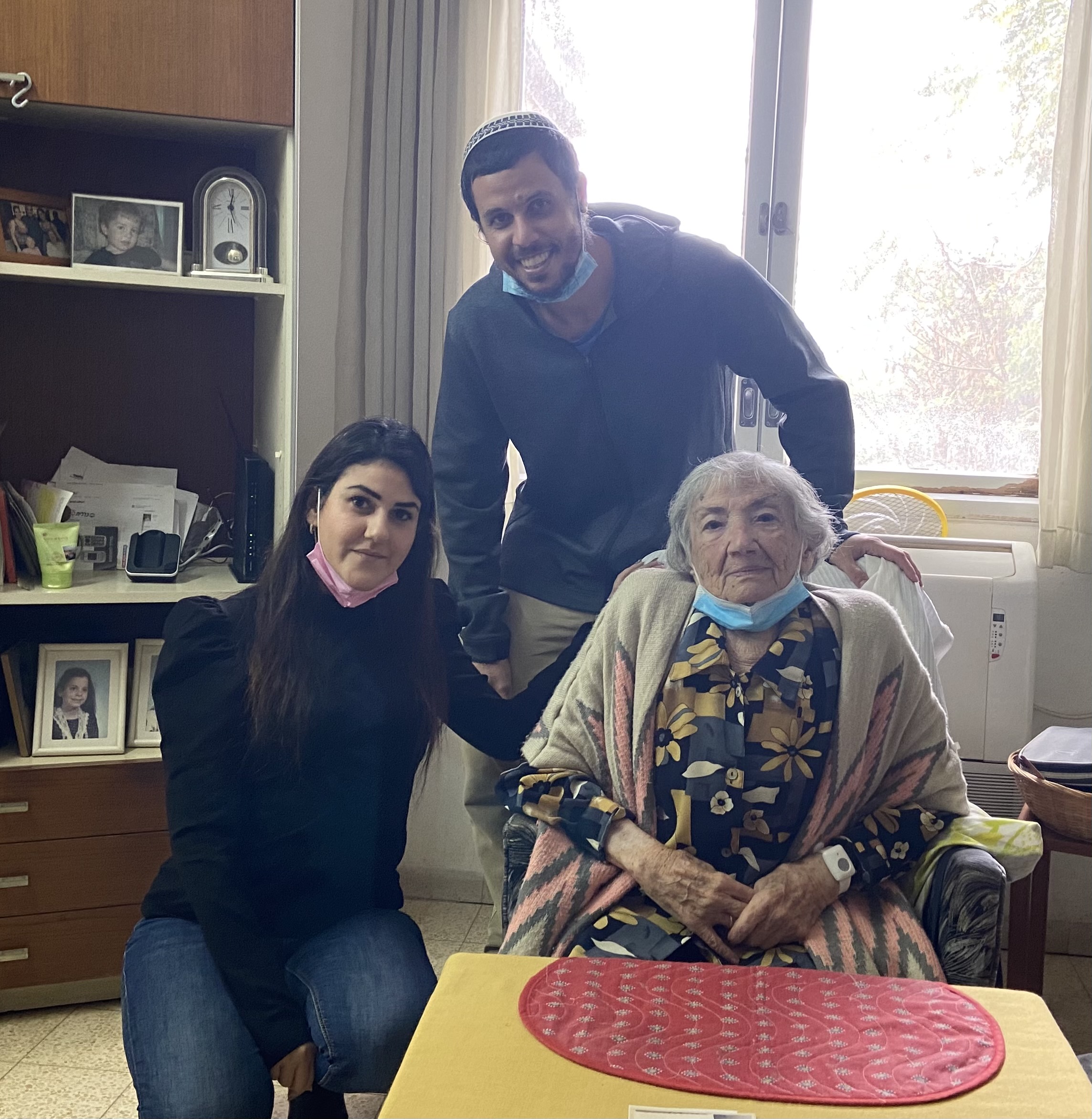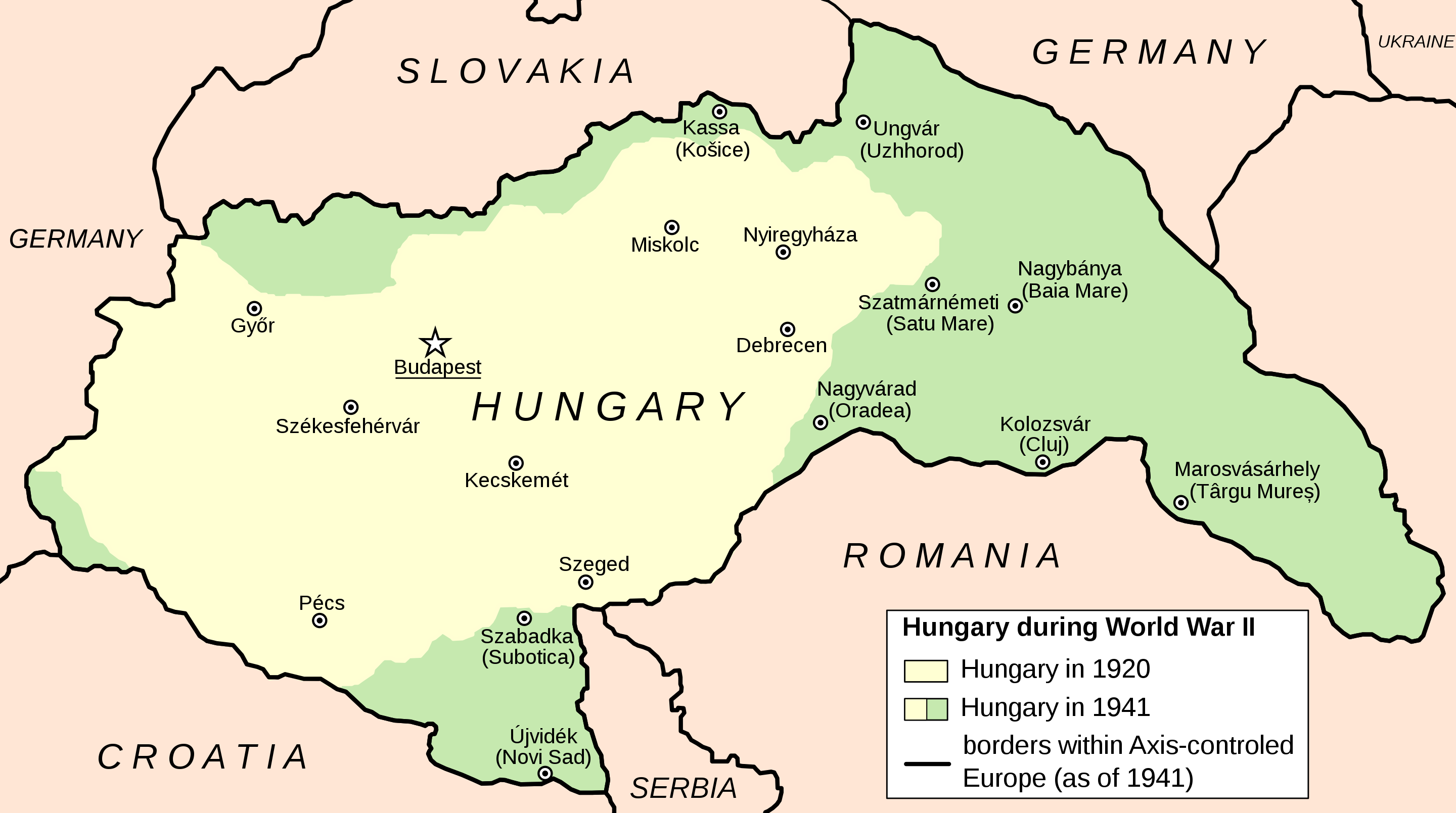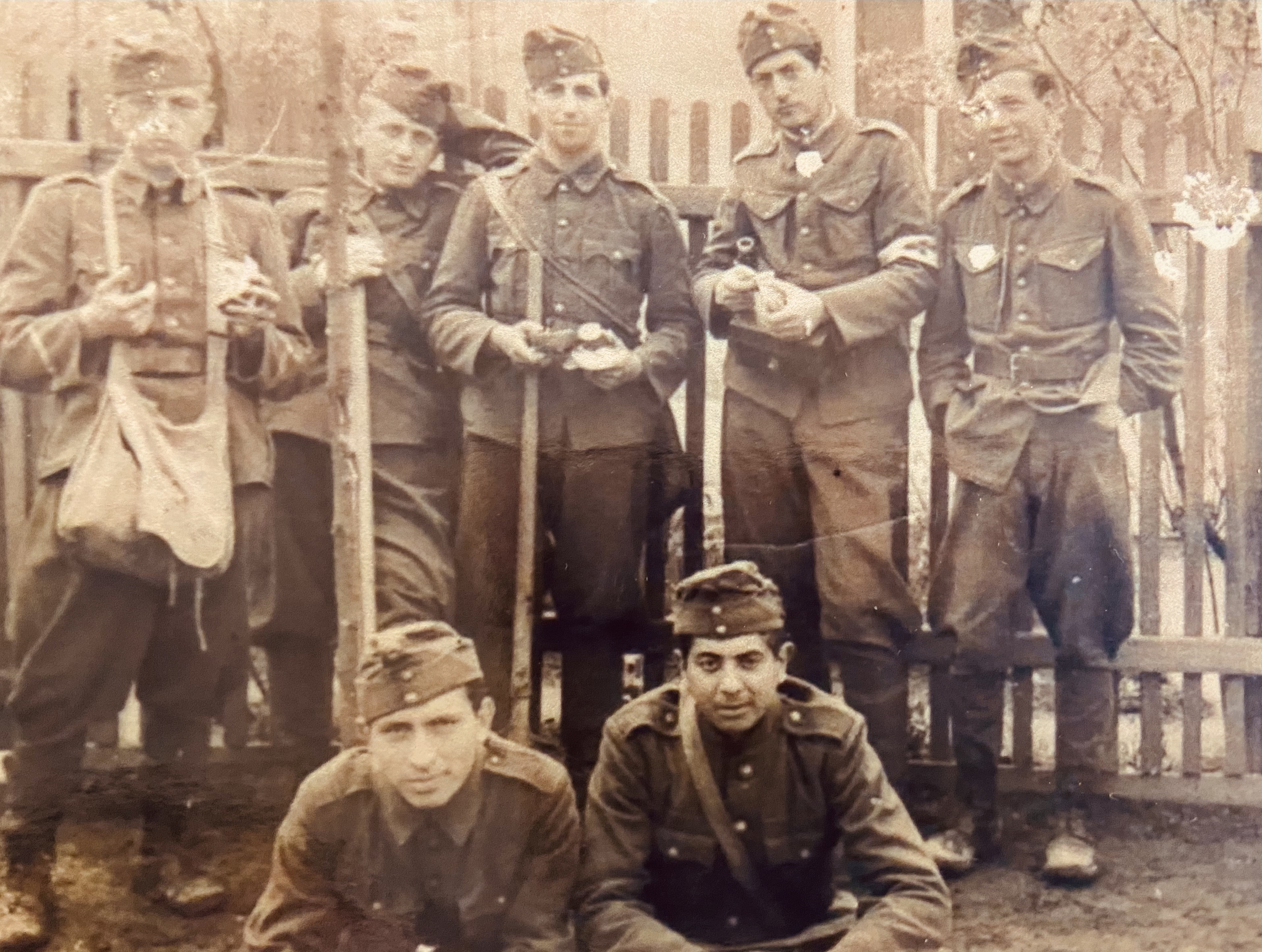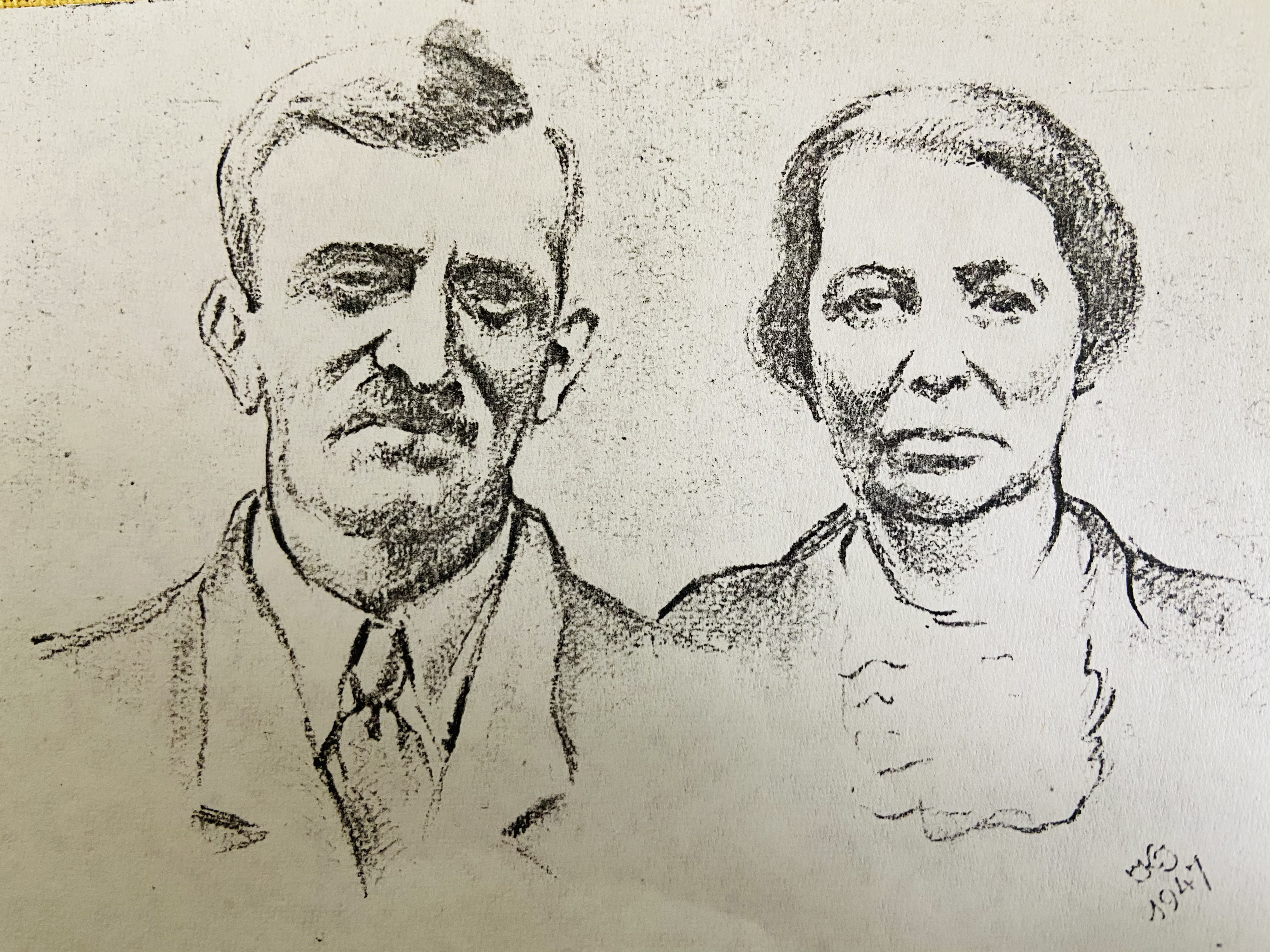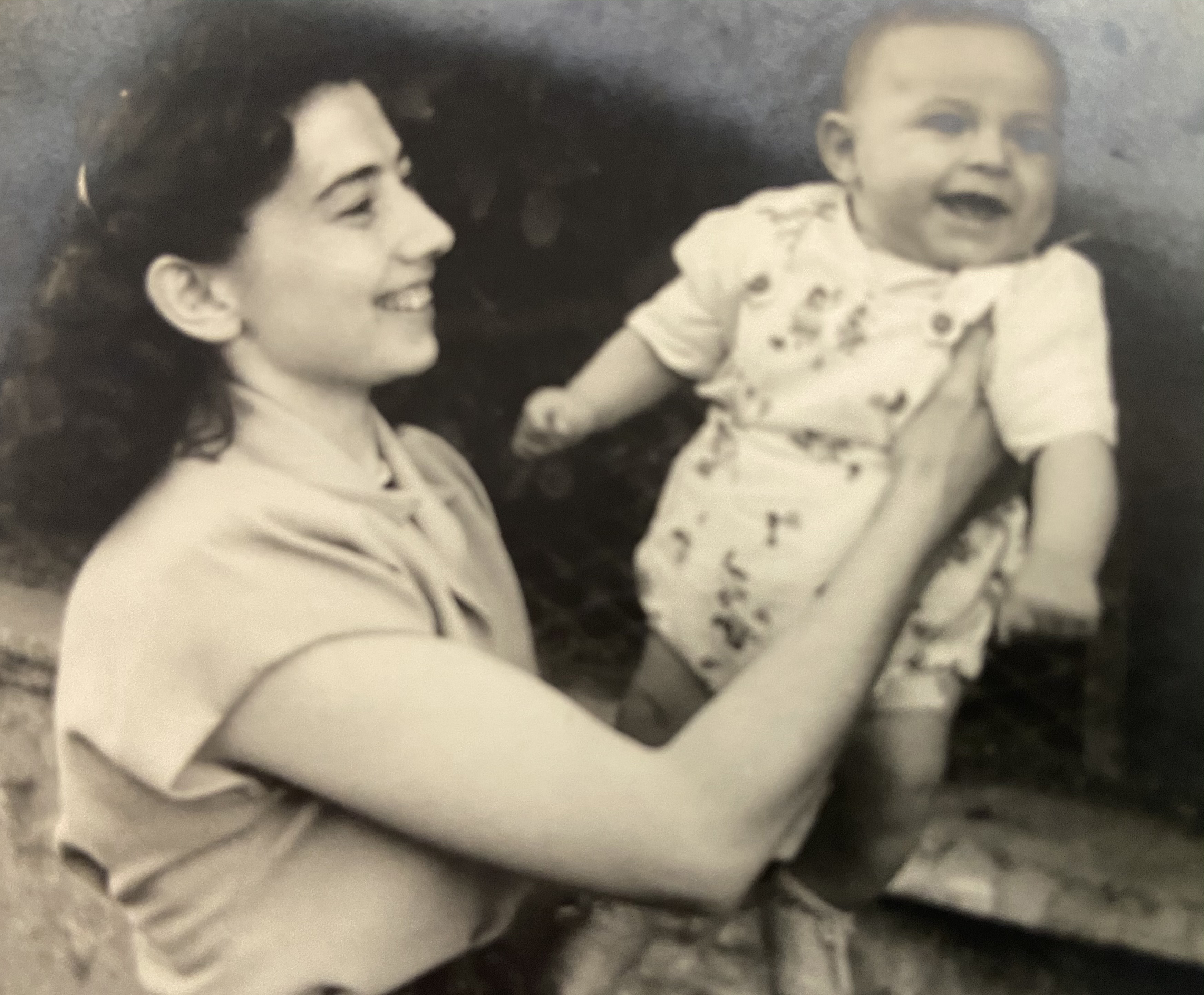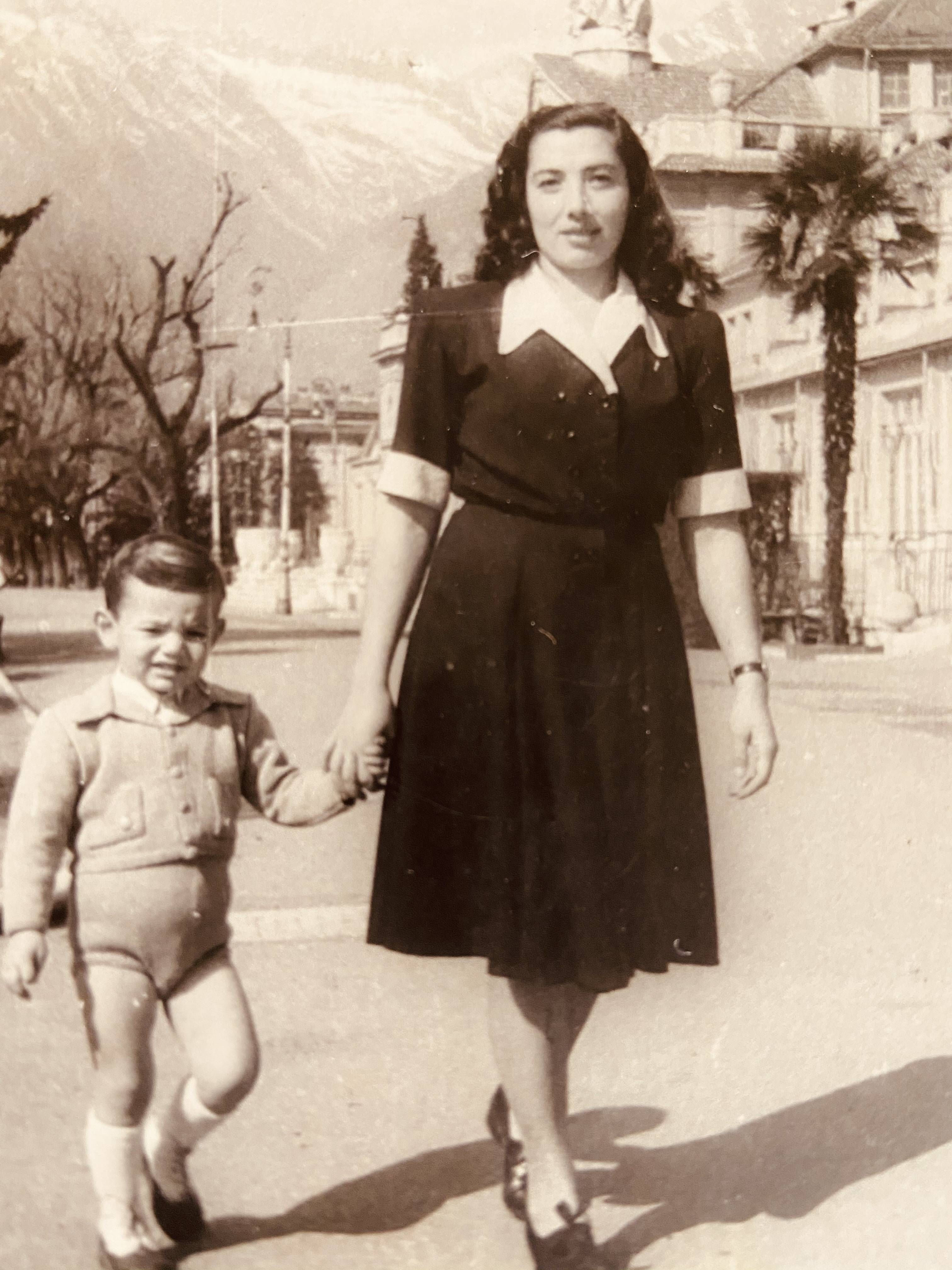Esther Kahn was born in 1926 in the Hungarian town of Sajovamos. She was one of the seven children of Yona and Gizella Vays. When she was three, her family moved to Budapest.
Esther, who was a very small child, remembers how her father handed her to her aunt through the train window when the train stopped at the station. In Budapest, her father opened a vegetable shop. Although the store wasn't very profitable and the family didn't have much money, Esther remembers life and her childhood as very pleasant.
In Budapest, Esther and her brother attended a Jewish school. Because tuition at that school was very expensive, her father was forced to transfer them to a mixed school where children from all religions studied together. Esther remembers best the Torah lessons with the rabbi. In general, Esther's home was conservative with a clear Jewish affinity, and it is very important to Esther to mention how much she enjoyed the prayers in the synagogue, the special choir there and the beautiful melodies.
In the afternoons after school, Esther participated in the activities of the youth movement “Maccabi Hatzair”. In that framework, she was infused with Zionism and values, and it was there, says Esther, that she first had the desire to immigrate and live in Eretz Israel.
In 1936, life began to change for Esther when the government enacted the first laws discriminating against the Jews. First, there were "simple" laws like banning Jews from owning and listening to radios. Then, there were restrictions on education. Eventually, Jews (including Esther's father) were sent to concentration camps. At school, the staff began harassing Jewish students. Esther says that on one occasion when the Christian students stood to sing the Hungarian national anthem, her sister did not stand in time and was therefore punished. In addition, some Christian children (but not all) stopped playing with the Jewish children.
When the situation worsened and the Germans were already in control of the area, the Jewish community leaders understood where things were heading and they started to prepare everyone for the "big trip" (to the concentration and extermination camps). Esther remembers the bag she packed to take with her on the trip. Inside the bag were pictures of her family, expensive toys and belongings: "I packed some pictures of me and the family. I remember…I realized that only the most important things could be taken, and that was what was important to me."
In 1943, when the situation in Hungary really worsened for the Jews, a small opportunity was available to Esther: she was taken to work in a vital factory and that, in retrospect, saved her life. The factory was closed only in January 1944, when the Germans realized they were facing defeat. Then, Esther was transferred to the Ravensbruck concentration camp where she stayed for four months.
At Christmastime during her imprisonment, she met a Dutch Christian woman. Esther looked so skinny and hungry that the woman handed her an apple. This incident is well remembered by Esther and arouses many emotions in her: "It's really hard for me to explain in words. I never thought I would be so excited because of an apple".
She was eventually transferred to Mauthausen concentration camp where she was held until the end of the war. After the liberation, Esther learned that only half of her family had survived. Esther realized then that the only place for her was the Land of Israel. She joined the kibbutz movement where she met her husband. Their first son was born during their journey to Israel.
In 1950, after a long journey, Esther and her family arrived in Israel and settled in Kibbutz Matzuva, where she lives to this day. When Esther was asked what she felt when she arrived in Eretz Israel, her answer was simple and sharp: "I have reached heaven, the place I dreamed of!"
In conclusion, Esther wishes to convey a message to future generations: "The Land of Israel is our home and it is important to know that we are all siblings. We must love one another and understand that no one will take care of us except ourselves."
